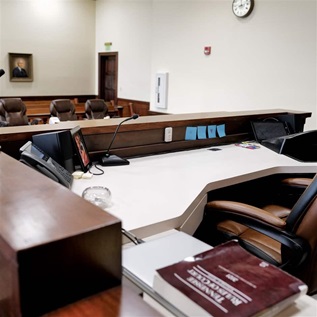Home at Last: Safe, Permanent Families for Foster Children
More than 500,000 U.S. children today reside in foster care, and too many of them wait far too long for a permanent family. While the system was designed to provide an important safety net for vulnerable children, it was never intended to be a long term solution. Children need a safe, permanent family in which to grow and thrive. In fact, foster care children are often moved from one placement to another--on average, three times. Each year, more than 20,000 children “age out” of the system without ever finding a permanent family. Children who stay in the system for long periods of time often exhibit emotional and behavioral problems and do poorly in school. Later in life, they are more likely to become homeless, unemployed, incarcerated or dependent on welfare.
A major factor underlying the foster care crisis is the federal financing “straitjacket:” Most federal child welfare dollars cannot be used until children are removed from their homes. This financing structure encourages states to place children in foster care to receive federal funds, rather than paying for supports and services that might allow children to remain safely with their families, or help those that do enter the system find permanent families through reunification, adoption or guardianship.
America's foster care system needs urgent reform. The Pew Charitable Trusts launched the Home at Last initiative in 2003 to advance public policies that would keep children from languishing in foster care. In 2004 the Pew Commission on Children in Foster Care, a nonpartisan, independent group comprised of leading child welfare experts, issued a set of recommendations for overhauling the nation's foster care system that included restructuring federal financing to give states greater flexibility and increase accountability. It also recommended giving state courts the tools to better track and oversee foster care cases and providing children and parents with a stronger voice in court. In 2007 Kids Are Waiting: Fix Foster Care Now was launched to raise awareness about how federal foster care financing reform would help improve outcomes for children.
Returning Results
Since 2004, major progress has been made:
- Many of the Pew Commission's court recommendations have been implemented through federal policy changes, including the allocation of $100 million over five years to track and manage cases, provide training and increase collaboration between courts and child welfare agencies.
- Across the nation, state supreme courts and child welfare agencies have created action plans for reform to accelerate the passage of children out of foster care and into safe, permanent families.
- More than one-third of all states have formed or are in the process of creating their own high-level commissions to promote collaboration between child welfare agencies and courts, as recommended by the Pew Commission, to better serve children in foster care.
Simply by changing the way the nation pays for services, we can keep some kids from entering foster care and move others out more quickly. Pew and its partners – some of the top children and family advocacy organizations in the nation – believe children should not have to wait any longer.
PEW PARTNERS IN REFORM
Pew is honored to work with many organizations and individuals committed to helping foster children find safe, permanent families.
Pew Commission on Children in Foster Care: www.pewfostercare.org
The Commission is an independent, nonpartisan entity dedicated to developing effective, practical policy recommendations to improve the foster care system. Hosted by the Georgetown University Public Policy Institute and chaired by Bill Frenzel, a 20-year veteran of Congress and current Guest Scholar at the Brookings Institution, the commission also includes some of the nation's leading child welfare experts, heads of state and local child welfare agencies, prominent judges, social workers, foster and adoptive parents, former foster youth and others.
Generations United www.gu.org
National Conference of State Legislatures www.ncsl.org
National Council for Adoption www.adoptioncouncil.org
National Indian Child Welfare Association www.nicwa.org
North American Council on Adoptable Children www.nacac.org
Kids Are Waiting: Fix Foster Care Now www.kidsarewaiting.org
FosterClub www.fosterclub.com






